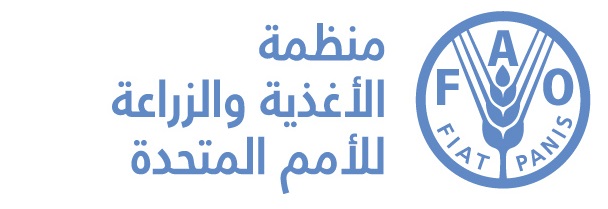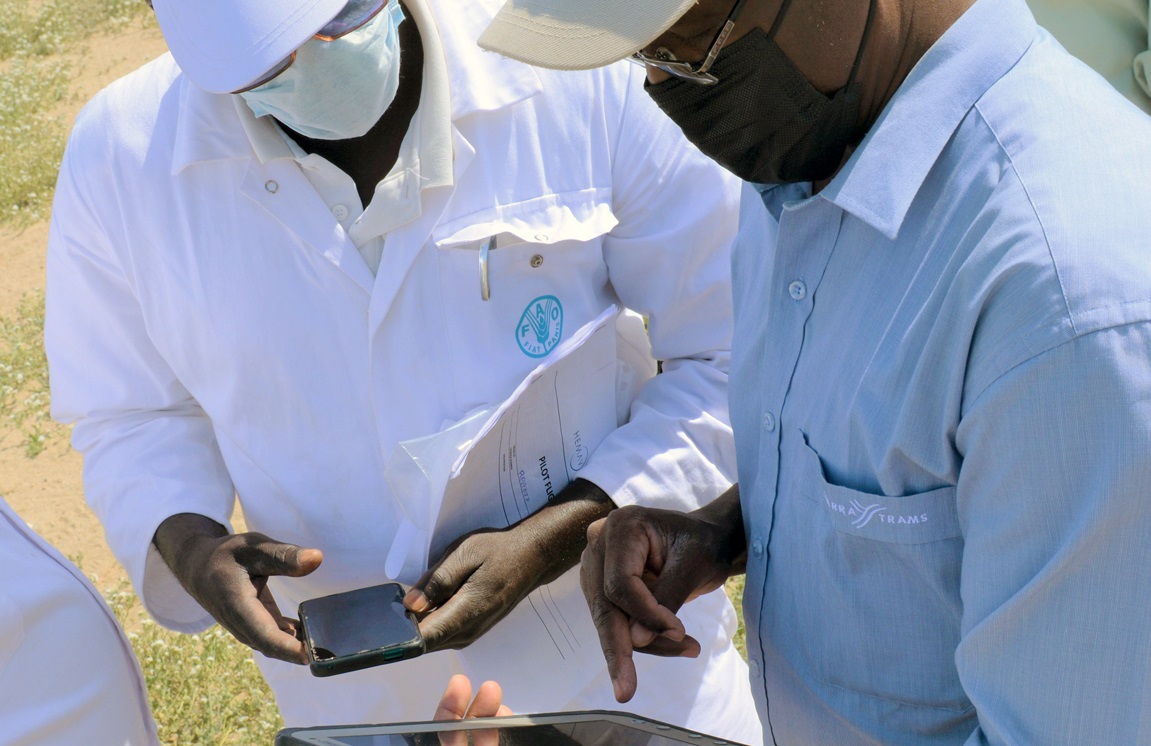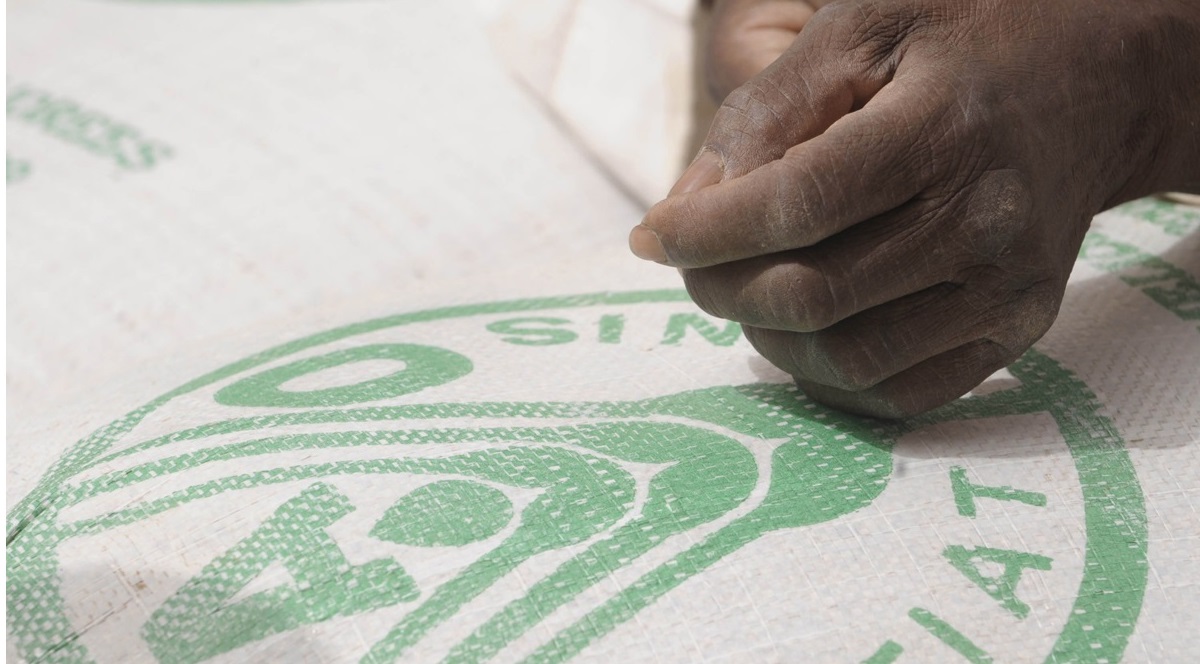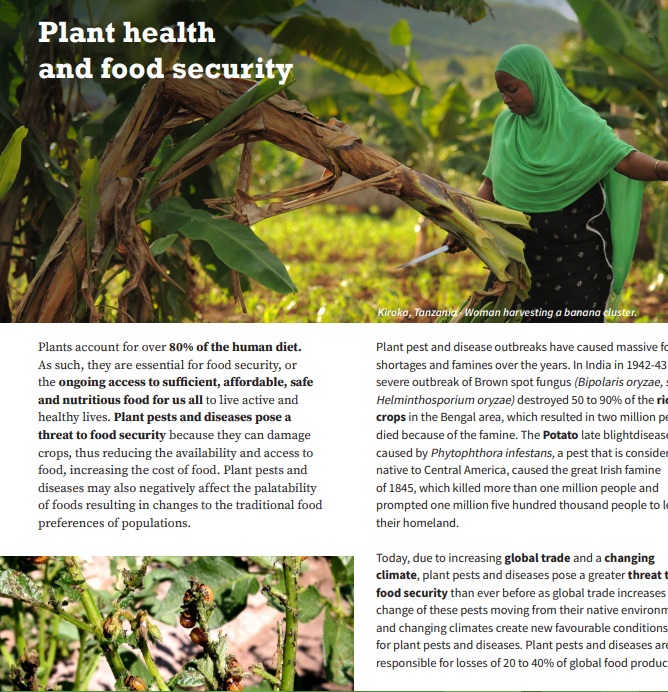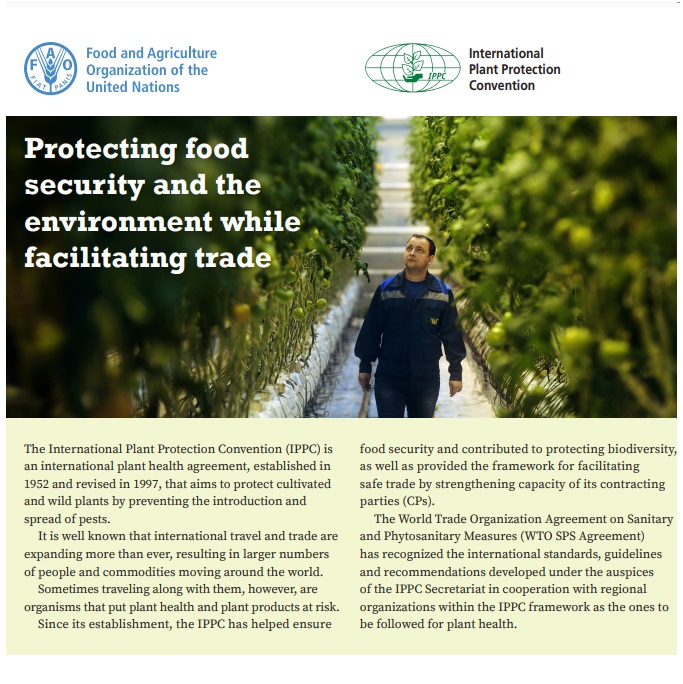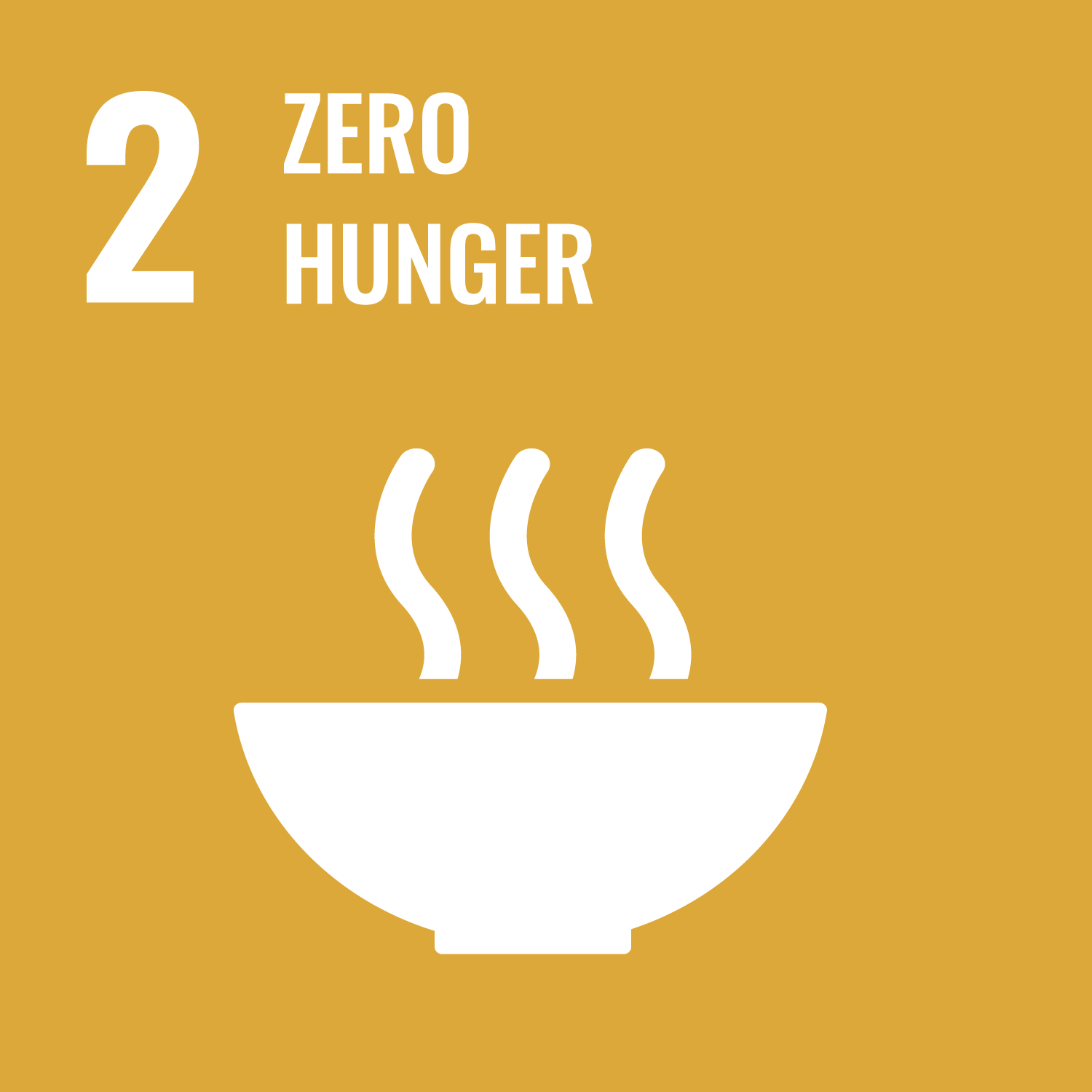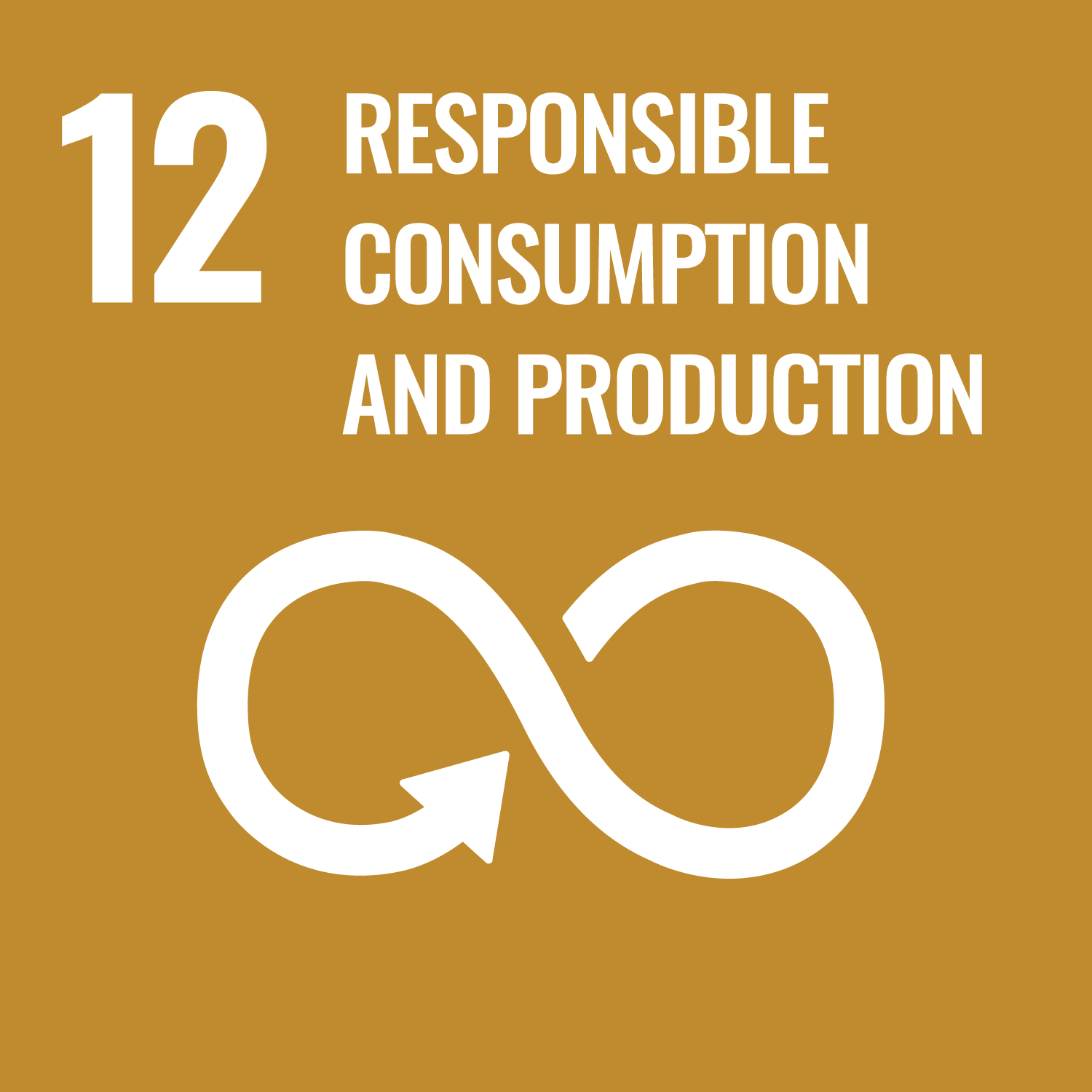Plant Health & Food Security

Key Facts
- Plant pests threaten food security by damaging important staple crops such as banana, potato and rice; making food less available, scarce and more expensive.
- Fall Armyworm, which feeds on about 80 plant species, causes about USD 9.4 billion loss worth of crops annually.
- In Caucasus and Central Asia, 25 million hectares of cultivated areas are under threat from Desert Locust, putting 20 million people are at risk of food insecurity, including the most vulnerable rural populations.
- In Latin America, 20 countries are currently grappling with banana Fusarium tropical race 4 (TR4), which causes banana fusarium wilt and 100 percent yield loss.
Limiting pest spread, protecting important crops, and collaborating across borders are necessary to feed our world of eight billion people. These tenets are core to the IPPC and the plant health community. Pests can destroy vast crop fields, ruin national crop production systems, cause devastating famine, untold suffering and death. Although 80 percent of all food comes from plants, 40 percent of global crop yields or USD 220 billion is lost to pests.
Therefore, through International Standards for Phytosanitary Measures (ISPMs), the IPPC supports contracting parties to collaborate by harmonizing the phytosanitary measures they apply to limit the impact of pests on crop productivity and food security. Standards such as ISPM 8 (Determination of pest status in an area)describe the kind of information required to determine the presence of a pest in an area, thereby guiding contracting parties to report the pest and apply relevant measures to protect plants and safeguard food security.
The IPPC Secretariat works with contracting parties to conduct technical training and to use a range of IPPC knowledge products to help them improve their national phytosanitary systems and capacity to prevent, detect and respond to pest incursions, hence protecting food sources and paving the way for a zero-hunger world.
